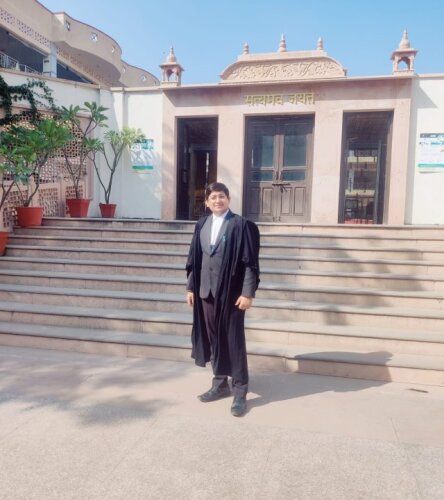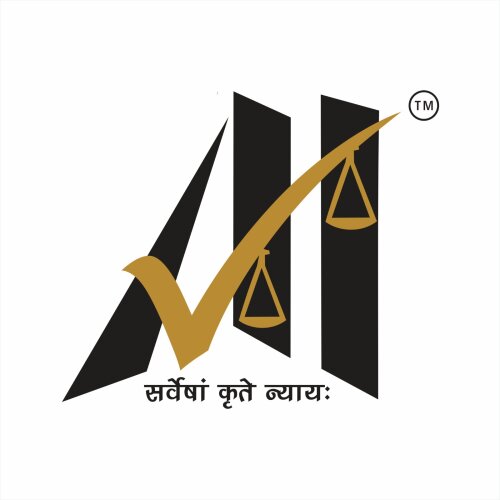Best Native People Lawyers in Jaipur
Share your needs with us, get contacted by law firms.
Free. Takes 2 min.
List of the best lawyers in Jaipur, India
About Native People Law in Jaipur, India
Native people in Jaipur, India, are an integral part of the diverse cultural and social fabric of the region. The term “native people” generally refers to the indigenous tribes and communities that have been living in and around Jaipur for centuries. These communities have unique traditions, languages, and lifestyles, often distinct from mainstream Indian society. The legal framework governing native people in Jaipur includes various national and local laws designed to protect their rights, land, and cultural heritage.
Why You May Need a Lawyer
Individuals may require legal assistance in matters related to native people in Jaipur for several reasons. Common situations include:
- Land disputes and issues related to traditional land ownership and use.
- Protection of cultural heritage and intellectual property rights.
- Access to government schemes and benefits specifically designed for native communities.
- Legal recognition of tribal identity and status.
- Criminal cases where a native person is either a victim or an accused.
- Employment and labor issues concerning native people.
- Education rights and opportunities for native children.
- Health and medical assistance for native communities.
- Discrimination or human rights violations against native people.
- Environmental issues affecting the native communities and their habitats.
Local Laws Overview
Several key laws in India are particularly relevant to native people in Jaipur. These laws aim to uphold the rights and welfare of indigenous communities:
- The Scheduled Tribes and Other Traditional Forest Dwellers (Recognition of Forest Rights) Act, 2006: This law recognizes the rights of tribal communities to live on and manage forest land.
- The Panchayats (Extension to Scheduled Areas) Act, 1996 (PESA): This Act aims to empower tribal communities by extending Panchayat provisions to Scheduled Areas, thereby granting them self-governance.
- The Scheduled Castes and the Scheduled Tribes (Prevention of Atrocities) Act, 1989: This Act protects native people from discrimination and atrocities.
- National and State Pollution Control Laws: These laws help protect the environment of native habitats.
- Various state government schemes and policies aimed at improving the socio-economic status of native people.
Frequently Asked Questions
What rights do native people have over forest land?
Under the Forest Rights Act, native people have rights to live on, manage, and use forest resources for their livelihood.
How can native people protect their cultural heritage?
Native people can seek legal protection under various intellectual property rights laws and through governmental and non-governmental organizations dedicated to cultural preservation.
What legal avenues exist for addressing land disputes involving native people?
Native people can approach local courts, file cases under relevant laws like the Forest Rights Act, and seek mediation or intervention from tribal councils.
How can native people access government schemes?
Native people can approach local government offices, community leaders, or legal aid organizations to access various schemes aimed at their welfare.
What steps should be taken if a native person faces discrimination?
Individuals can file a complaint under the SC/ST (Prevention of Atrocities) Act and seek legal help from human rights organizations.
Are there specific employment rights for native people?
Yes, native people are entitled to reservations in education and government jobs under affirmative action policies.
How can native people ensure their children receive an education?
Parents can enroll their children in nearby schools and seek assistance through educational programs and scholarships specific to native communities.
What healthcare services are available for native people?
The government provides various healthcare schemes, mobile medical units, and special dispensaries in tribal areas to ensure accessible healthcare.
What should be done in cases of environmental degradation affecting native lands?
Native people can file complaints with environmental authorities, seek intervention from NGOs, and use legal channels to protect their environments.
How is the identity and status of native people legally recognized?
Native people can obtain Scheduled Tribe certificates from local authorities, which affirm their legal status and eligibility for various benefits.
Additional Resources
Here are some resources and organizations that can be helpful:
- Ministry of Tribal Affairs, Government of India
- Rajasthan State Tribal Development Department
- Local Panchayat Offices
- Legal Aid Services in Rajasthan
- Non-Governmental Organizations (NGOs) focused on tribal rights
- Tribal Research and Training Institute, Jaipur
Next Steps
If you need legal assistance related to native people in Jaipur, consider the following steps:
- Identify your specific legal issue and gather all necessary documents and evidence.
- Consult with a lawyer specialized in native people law through local legal aid offices or private law firms.
- Seek guidance from community leaders and tribal councils who may have valuable insights and resources.
- Engage with relevant government departments or NGOs for additional support and assistance.
- Stay informed about your rights and any updates in relevant laws and policies.
Lawzana helps you find the best lawyers and law firms in Jaipur through a curated and pre-screened list of qualified legal professionals. Our platform offers rankings and detailed profiles of attorneys and law firms, allowing you to compare based on practice areas, including Native People, experience, and client feedback.
Each profile includes a description of the firm's areas of practice, client reviews, team members and partners, year of establishment, spoken languages, office locations, contact information, social media presence, and any published articles or resources. Most firms on our platform speak English and are experienced in both local and international legal matters.
Get a quote from top-rated law firms in Jaipur, India — quickly, securely, and without unnecessary hassle.
Disclaimer:
The information provided on this page is for general informational purposes only and does not constitute legal advice. While we strive to ensure the accuracy and relevance of the content, legal information may change over time, and interpretations of the law can vary. You should always consult with a qualified legal professional for advice specific to your situation.
We disclaim all liability for actions taken or not taken based on the content of this page. If you believe any information is incorrect or outdated, please contact us, and we will review and update it where appropriate.














